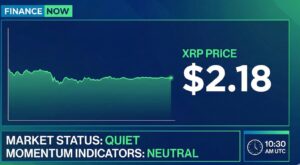A new era of inclusivity and accessibility is being ushered in by blockchain technology in the Kingdom of Saudi Arabia, where tradition and modernization coexist. Saudi Arabia is using blockchain technology to empower its population and address societal issues by taking advantage of its decentralized structure and openness. Let’s explore five impactful ways Blockchain has built inclusivity in Saudi Arabia, ensuring that no one is left behind.
Bridging Gaps: How Blockchain Enhances Inclusivity in Saudi Arabia
Financial Inclusion
Blockchain technology is democratising access to financial services in a nation where a sizeable section of the populace lacks or has inadequate bank accounts. Anybody can easily engage in the financial ecosystem, regardless of their socioeconomic background, thanks to efforts like digital wallets and blockchain-based payment networks. This promotes economic empowerment and opens doors for prosperity for all facets of society.
Transparent Governance
In Saudi Arabia, inclusivity also applies to the government, where Blockchain is fostering accountability and transparency. Blockchain reduces the possibility of corruption and guarantees the equitable and effective distribution of resources by keeping track of contracts and government transactions on a decentralised ledger. Citizens are encouraged to be a part of the decision-making process, and government institutions are trusted more.
Secure Digital Identity
Blockchain technology is transforming Saudi Arabian identity management by giving every person a digital identification that is unhackable and safe. Thanks to blockchain-based identity solutions, people can establish their identity, engage in online transactions, and access government services without worrying about fraud or manipulation. Guaranteeing that everyone has equal passage to opportunities and necessary services encourages inclusion.
Education and Career Opportunities
Blockchain-based credentialing systems are improving inclusivity in Saudi Arabia’s education and career sectors. Employment and educational hurdles are removed by the Blockchain’s digitization of professional and educational certifications, which allows people to quickly verify their credentials and abilities. All citizens now have more opportunities to follow their goals and make significant contributions to society.
Takeaways
In conclusion, blockchain technology is essential for building inclusivity in Saudi Arabia, ensuring that every citizen has an equal approach to opportunities and resources. By leveraging Blockchain’s decentralized architecture and transparency, Saudi Arabia is breaking down barriers and creating a more inclusive and equitable society for all. As Blockchain continues to evolve, its potential to drive positive social change and foster inclusivity in Saudi Arabia will only grow stronger, shaping a brighter future for generations to come.




























